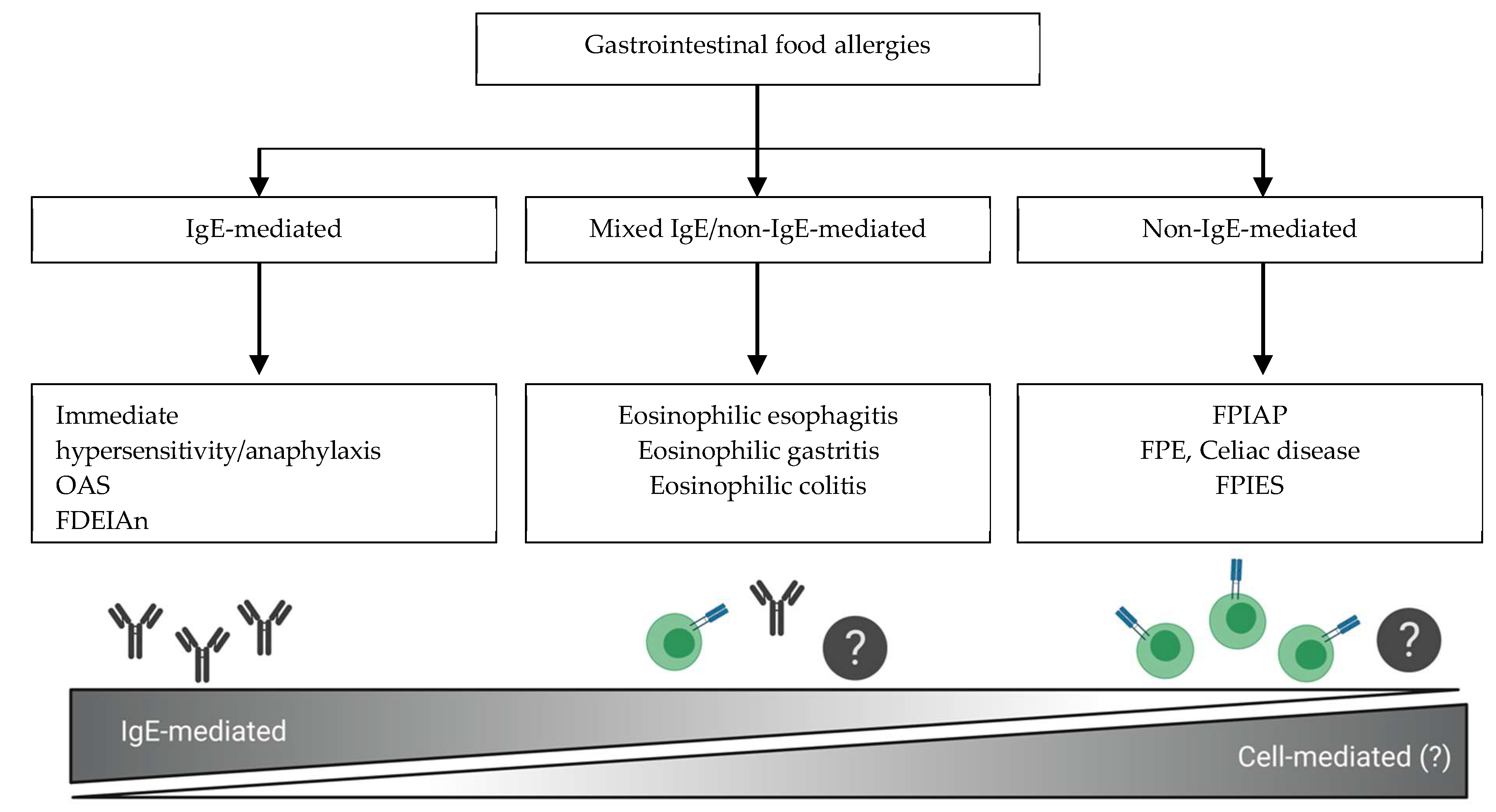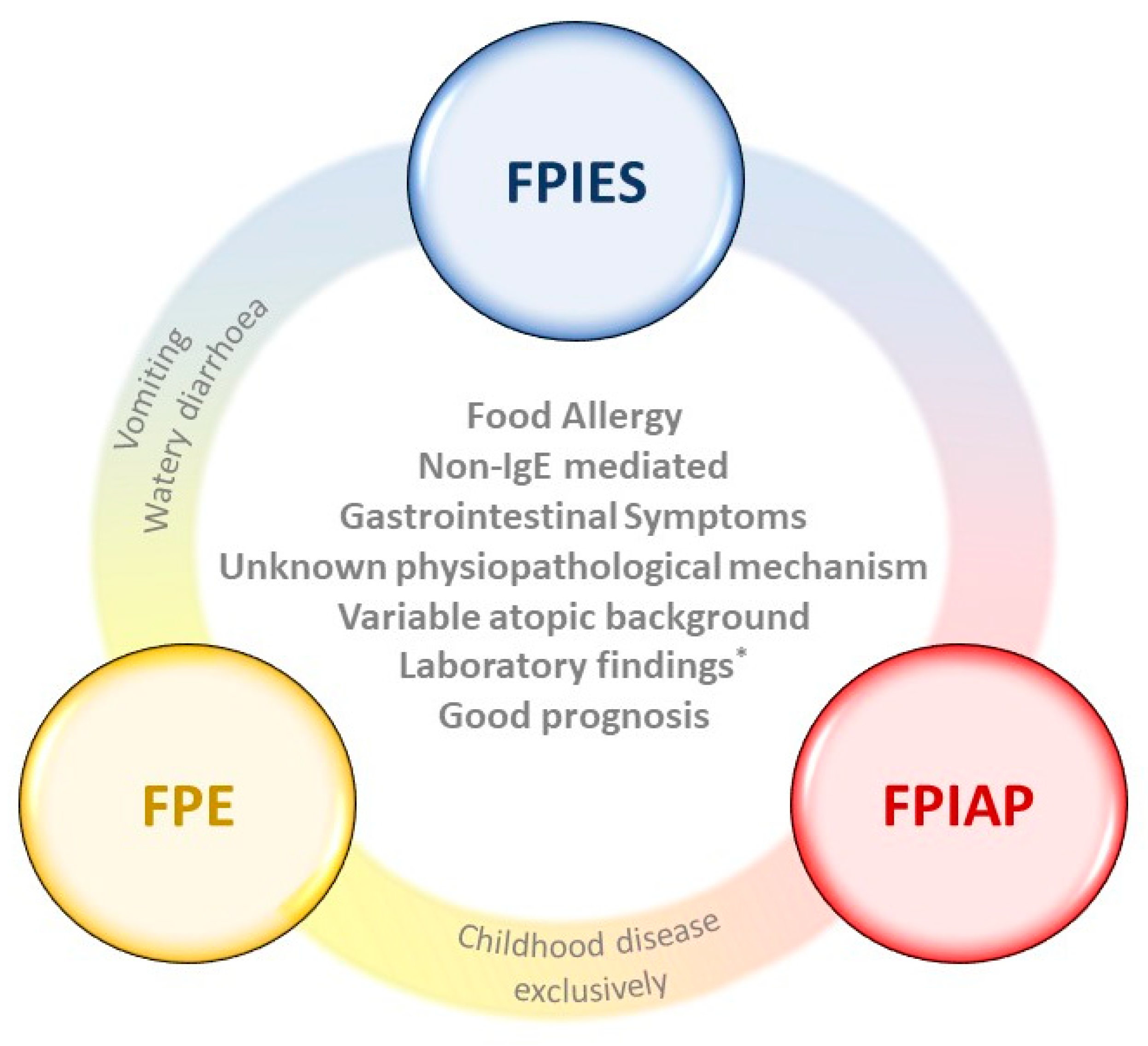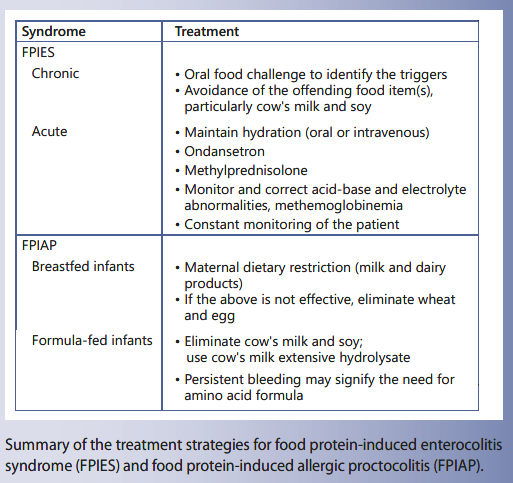food protein induced enterocolitis syndrome in adults
Food proteininduced enterocolitis-like syndrome in a population of adolescents and adults caused by seafood. Bryan N Fernandes Robert J Boyle Claudia Gore Angela Simpson Adnan Custovic.

Fpies In Babies Symptoms Risk Factors And More
Like other food allergies FPIES reactions are triggered by eating a particular food.

. Food Protein-Induced Enterocolitis Syndrome FPIES is an inflammation involving both the small intestine and the large intestine colon. Food protein-induced enterocolitis syndrome FPIES is a rare food allergy that affects the gastrointestinal GI tract. In some cases symptoms can progress to dehydration and shock brought on by low blood pressure and poor blood circulation.
Food Protein Induced Enterocolitis Syndrome FPIES is a type of non-IgE mediated food allergy that can present with severe vomiting diarrhea and dehydration. Specifically unlike what has been document in the pediatric population the adult cohort less frequently experienced vomiting. In this study we report a Canadian cohort of 19 adolescents and adults with recurrent non-immunoglobulin E IgE-mediated gastrointestinal symptoms after crustacean ingestion consistent with FPIES.
Adults and children have different experiences with food protein-induced enterocolitis syndrome although more research is necessary according to a study published in The Journal of Allergy and Clinical Immunology. Adults and children have different experiences with food protein-induced enterocolitis syndrome although more research is necessary according to a study published in The Journal of Allergy and Clinical Immunology. Instead it can take hours before severe symptoms begin.
Food protein-induced enterocolitis FPIES an entity previously thought to only affect children has been increasingly described in adults. 1 In about 1520 of the reactions severe dehydration with hypotension and metabolic derangements. Food protein-induced enterocolitis syndrome FPIES is an uncommon disorder characterized by an allergic reaction to food that affects the gastrointestinal system.
A similar syndrome in adults has been associated primarily with shellfish although dairy wheat and egg are also reported 1-4. Food Protein-Induced Enterocolitis Syndrome FPIES sometimes referred to as a delayed food allergy is a severe condition causing vomiting and diarrhea. This is different from the common triggers in kids which are dairy soy oats rice and banana among others.
Food protein-induced enterocolitis syndrome FPIES is increasingly recognized in adults with a predominance in women. It typically causes vomiting and bloody diarrhea after consumption of certain foods the trigger foods arent the same for everyone. The term enterocolitis specially refers to inflammation of the small and large intestines.
Food protein-induced enterocolitis syndrome FPIES is a non-immunoglobulin E. Vomiting is often followed by a paleness to the skin. Food protein-induced enterocolitis syndrome FPIES is a potentially severe presentation of non-IgE-mediated gastrointestinal food allergy non-IgE-GI-FA with heterogeneous clinical manifestations.
The bad thing about FPIES is that realistically any food can be a trigger. The most common triggers include cow milk soy and grains rice barley oats. Symptoms include severe vomiting and diarrhea and usually occur 2-3 hours after eating a food.
Many allergists report that symptoms suggestive of FPIES are on occasion reported by adult patients and mainly refer to ingestion of seafood. Acute FPIES is typically characterized by profuse vomiting and lethargy occurring classically 14 hours after ingestion of the offending food. Unlike most food allergies symptoms of FPIES do not begin immediately after eating.
It is caused by an allergic reaction to one or more ingested foods which results in inflammation of the small and large intestine. Milk and dairy products soy or soymilk and wheat or other grains are the most common foods that cause an attack. In its acute form FPIES presents with vomiting that usually begins 1 to 4 hours after trigger food ingestion.
FPIES symptoms can be very serious and can include turning grey or blue dehydration and even going into shock. Food Protein-Induced Enterocolitis Syndrome is a systemic non IgE-mediated response to a specific trigger within food - most likely food protein. Food protein-induced enterocolitis syndrome FPIES is an adverse food reaction involving the immune system that mainly affects infants and young children.
FPIES usually develops in infancy and resolves around 3-5 years of age. FPIES food protein induced enterocolitis syndrome is a serious allergic reaction to certain foods. Avoidance of triggering foods ensuring good nutrition healing the gut balancing the immune system and maintaining a good inflammatory balance are keys to treatment.
This syndrome typically occurs in infants and the typical culprit foods for children are cows milkdairy soy rice and oat. Adults with possible food protein-induced enterocolitis syndrome with crustacean ingestion Abstract. Food protein-induced enterocolitis syndrome can occur in adults.
Food protein-induced enterocolitis FPIES an entity previously thought to only affect children has been. Some kids also can be allergic. Food protein-induced enterocolitis syndrome FPIES is a non-IgE cell-mediated food allergy that manifests with repetitive projectile vomiting within 14 hours following food ingestion frequently accompanied by pallor lethargy and may be followed by diarrhea within 68 hours.
Most of the reactions were due to seafood mollusks crustaceans and fish and egg but other foods like peanut almond mushroom corn chicken and duck were also implicated. Differences in clinical manifestations trigger foods and prognosis compared to pediatric FPIES have been reported. The most common trigger is shellfish followed by fish egg peanuts almonds chicken and dairy.
Specifically unlike what has. Symptoms of profuse vomiting and sometimes diarrhoea most commonly occur two to four. J Allergy Clin Immunol.
An acute form and a chronic form. Epub 2012 Jul 24. FPIES presents in two different forms.
Food protein-induced enterocolitis syndrome FPIES is a condition that occurs in infants and young children although it can rarely affect older children or adults as well.
Two Case Reports Of Food Protein Induced Enterocolitis

International Fpies Association

Nutrients Free Full Text Non Ige Mediated Gastrointestinal Food Allergies In Children An Update Html

Food Protein Induced Enterocolitis Syndrome Oral Food Challenge Annals Of Allergy Asthma Immunology
Two Case Reports Of Food Protein Induced Enterocolitis

Foods Free Full Text Non Ige Mediated Gastrointestinal Food Protein Induced Allergic Disorders Clinical Perspectives And Analytical Approaches Html

Managing Food Protein Induced Enterocolitis Syndrome During The Coronavirus Disease 2019 Pandemic Annals Of Allergy Asthma Immunology

References In Food Protein Induced Enterocolitis Syndrome Not So Rare After All Journal Of Allergy And Clinical Immunology

Food Protein Induced Enterocolitis Syndrome And Proctocolitis

Dietary Management Of Food Protein Induced Enterocolitis Syndrome During The Coronavirus Disease 2019 Pandemic Annals Of Allergy Asthma Immunology

Food Protein Induced Enterocolitis Syndrome The Journal Of Allergy And Clinical Immunology In Practice

Oral Food Challenge In Food Protein Induced Enterocolitis Syndrome Download Table

Clinical Types Of Food Protein Induced Enterocolitis Syndrome Fpies Download Scientific Diagram
Food Protein Induced Enterocolitis Syndrome As A Cause For Infant Hypotension The Western Journal Of Emergency Medicine

Food Protein Induced Enterocolitis Syndrome Annals Of Allergy Asthma Immunology

Clinical Types Of Food Protein Induced Enterocolitis Syndrome Fpies Download Scientific Diagram

Interpretation Of The Food Protein Induced Enterocolitis Syndrome Oral Download Table

Gastrointestinal Immunopathology Of Food Protein Induced Enterocolitis Syndrome And Other Non Immunoglobulin E Mediated Food Allergic Diseases Sciencedirect
